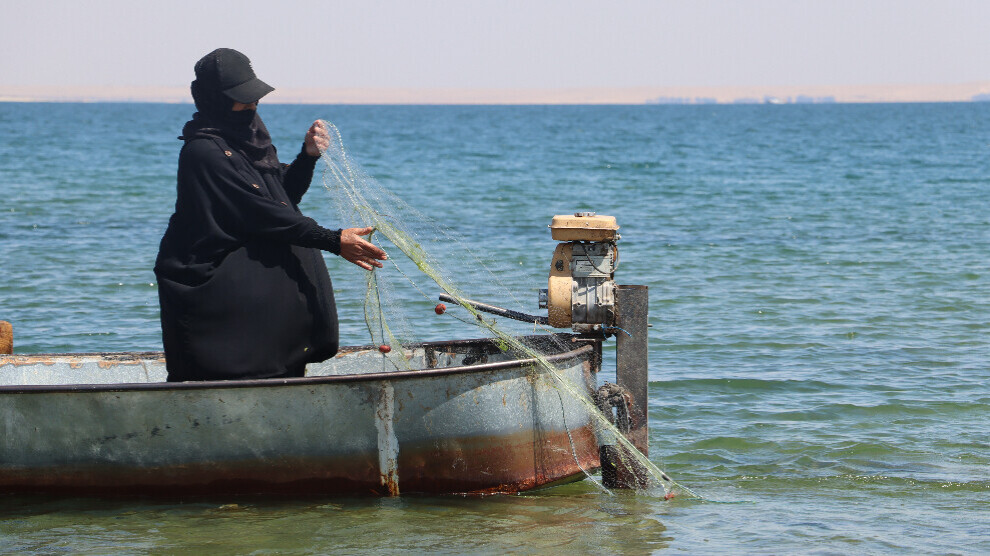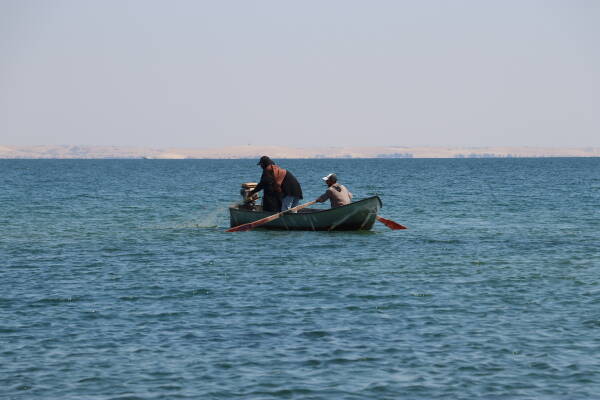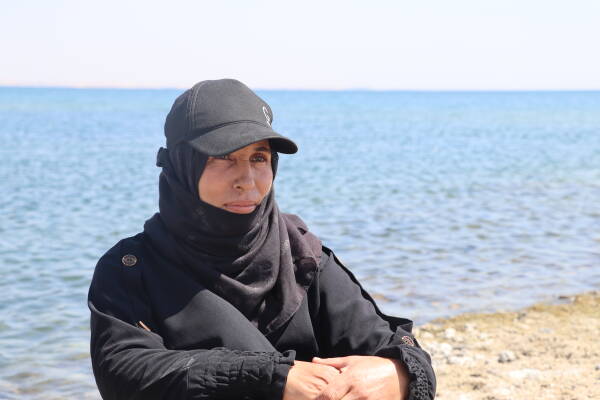The Determination of Zahra, Who Fishes in Raqqa, Turned into a Successful Woman’s Story
In Raqqa, northern Syria, women make a living by fishing in the Euphrates River while also breaking social stereotypes. Zahra Al-Masloub, who has been fishing for 25 years, is a role model for women with her determination.

BERÂ’A CELÎ
Raqqa – The Euphrates River in North and East Syria is not only a source of water but also an economic lifeline for women. Especially in the city of Raqqa, many women have turned fishing into a livelihood. Fishing stands out as an important profession that both contributes to the family budget and allows women to stand on their own feet. Women’s participation in fishing represents a challenge to gender stereotypes. By fishing with nets and rods on the riverbank, women not only secure income but also preserve a cultural heritage.
Forty-five-year-old Zahra Al-Masloub from Raqqa recounts her 25 years in fishing, saying: “I learned to fish when I was 20. It was my hobby, and I enjoyed it very much. Soon after learning, I started working. At first, I felt dizzy and tired, but I got used to it over time. I also learned how to weave fishing nets.”

“Over time, she bought her own boat and began working independently”
Zahra Al-Masloub says that circumstances determine people’s choices, and this situation doubles the challenges faced by women. Despite living in a conservative environment, she says she did not receive negative reactions from her community. Over time, she bought her own boat and began working independently. She explains: “When I bought my first boat, I was very happy. I didn’t care what people said. We largely make our living through fishing. I work twice as hard for my 15-year-old sick daughter and my growing child. My husband works, but his income is not enough. Fishing is our main source of income.”
“Sometimes I catch 15–20 kilos of fish”
Emphasizing that fishing is an expensive job, Zahra Al-Masloub points out that both the cost of equipment and natural conditions make the work more difficult: “Boats and nets are expensive. Sometimes we go days without catching any fish. In cold weather, freezing waves come, but such days also bring abundant catches. At sunset, we cast our nets into the river and then return home. In the early morning, we go back to collect the nets. Sometimes I catch 15–20 kilos of fish. This job has become a part of my life. As long as I have the strength, I will continue fishing, because I have no other option.”

Delivering her message to women, Zahra Al-Masloub says: “If you have the strength to do something, don’t stop. Don’t listen to those who say ‘women can’t do it.’ It doesn’t matter if you are a man or a woman; anyone who has the ability to work should work. It is possible to live without being dependent on anyone.”
Women’s fishing journey is not only economic but also carries social and psychological dimensions. Reducing stress and anxiety, encouraging physical activity, and improving patience and decision-making skills all add to the social value of fishing. Moreover, fish continues to be a healthy and affordable food source for the people of the region.
